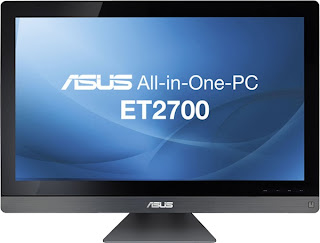Indeed, the name "Chromebook" comes from the fact that the laptop is running the so-called Chrome OS - basically an embedded version of Google's Chrome Web browser. If you've used the Chrome browser on Windows or Mac, you know that it asks you to log in, and then it syncs your bookmarks, Google identity, Google Docs, and Google Drive files. The Chromebook works the same way, except there's no way out of that browser. Apps can run on a Chromebook, but they're Web apps; they load through the browser.
That's not to say the Chromebook can't do anything offline: it can read files and play movies and music anytime. And Chrome OS has gotten better at file compatibility PowerPoint, Word docs, Excel files, ZIP files, and PDFs all load well and look great. You can't edit documents without first uploading to Google Docs, though. Photos can be viewed and even lightly edited with brightness and contrast adjustments, rotation, and cropping. The files can be resaved or uploaded to Picasa.
Our experience with the Samsung Series 5 Chromebook last year left us underwhelmed: it had smoothly running hardware and a clean operating system, but with such a limited set of uses compared with Windows, a high sticker price of over $400, and the requirement of being online to use most apps like Google Docs, the Chromebook didn't add up to a logical choice for anyone other than a Google cloud devotee. A year later, the new Samsung Chromebook Series 5 550 has slightly improved hardware and improved Chrome OS software, but its price - a whopping $449, or $549 with a Verizon 3G wireless antenna - is flat-out crazy.
Here's the biggest problem with the Chromebook: the hardware's fine, and the simplified Web-based OS is clever, and even versatile if you don't mind its limitations. Still, it's a radically reduced subset of what you can get on a Windows or Mac laptop...or even an iPad or Android tablet, for that matter. Yet, it costs more than a new iPad 2, a thinner, keyboard-enabled Android tablet like the Asus Transformer Pad, or a fully featured 11-inch ultraportable laptop like the AMD-powered HP dm1z. If the Chromebook were $99, this could have been a revolutionary product. As it currently stands, it's merely an invitation to pay a lot of money to be part of a Google experiment.
That's not to say the Chromebook can't do anything offline: it can read files and play movies and music anytime. And Chrome OS has gotten better at file compatibility PowerPoint, Word docs, Excel files, ZIP files, and PDFs all load well and look great. You can't edit documents without first uploading to Google Docs, though. Photos can be viewed and even lightly edited with brightness and contrast adjustments, rotation, and cropping. The files can be resaved or uploaded to Picasa.
Our experience with the Samsung Series 5 Chromebook last year left us underwhelmed: it had smoothly running hardware and a clean operating system, but with such a limited set of uses compared with Windows, a high sticker price of over $400, and the requirement of being online to use most apps like Google Docs, the Chromebook didn't add up to a logical choice for anyone other than a Google cloud devotee. A year later, the new Samsung Chromebook Series 5 550 has slightly improved hardware and improved Chrome OS software, but its price - a whopping $449, or $549 with a Verizon 3G wireless antenna - is flat-out crazy.
Here's the biggest problem with the Chromebook: the hardware's fine, and the simplified Web-based OS is clever, and even versatile if you don't mind its limitations. Still, it's a radically reduced subset of what you can get on a Windows or Mac laptop...or even an iPad or Android tablet, for that matter. Yet, it costs more than a new iPad 2, a thinner, keyboard-enabled Android tablet like the Asus Transformer Pad, or a fully featured 11-inch ultraportable laptop like the AMD-powered HP dm1z. If the Chromebook were $99, this could have been a revolutionary product. As it currently stands, it's merely an invitation to pay a lot of money to be part of a Google experiment.


















